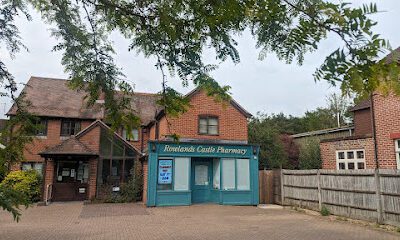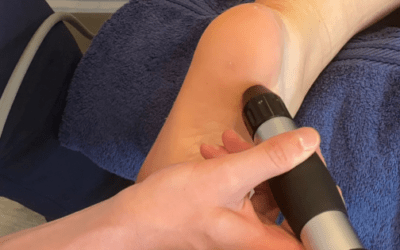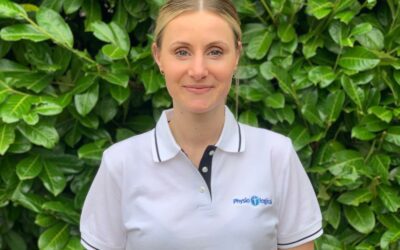High impact racket sports such as tennis often contribute to overuse injuries within the tendons of the forearm and elbow. This is mainly due to repetitive high velocity movement of the arm when swinging and making contact with the ball, which over time may overload the muscle and tendon fibres. This leads to sharp pain and throbbing around the outside of the forearm near the bony prominence of the elbow. If the issue is not treated early and activity is not modified then the injury may become chronic and the elbow and wrist will become less mobile.
Symptoms
A highly active 63-year-old lady who plays tennis competitively three to four times a week came to the clinic presenting with pain around the outside of her elbow. The pain originated mid-way through a game of tennis, where she was using a loosely strung racket. The pain continued to be present for around two hours after playing but would eventually ease off with rest.
After a week of trying to play tennis, it was becoming too painful to play competitively and therefore she decided to book in with one of our physiotherapists.
Assessment
A full initial assessment was carried out to understand the extent of the injury. A combination of elbow and wrist special tests were used alongside muscle strength testing to determine which muscles and tendons were injured. Based on the outcomes of these tests along with the subjective history provided by the patient the therapist was able to diagnose lateral epicondylitis which is most commonly referred to as tennis elbow. It is likely that when using the loosely strung racket a higher velocity of swing was needed in order to send the ball over the net which would have led to increased demand on the muscle and tendon fibres. After some time playing with higher swing speed the muscles and associated tendons used to extend the wrist when striking the ball became irritated and strained. As she continued to play it would have exacerbated the irritation causing increase in pain around the elbow.
Treatment
As it became apparent within the initial assessment, playing tennis was very important to the patient and therefore taking a break from the sport was the last resort. Moreover, the patient had reported previous tennis elbow injuries which may have not fully restored back to 100%. She had received corticosteroid injections to treat the previous injury, however research suggests this will likely only provide a short-term fix. For these reasons Radial shockwave therapy was proposed as it would help to mediate inflammation and block pain messages within the area, helping her to continue playing tennis without severe pain.
Each session included two-thousand pulses within the associated muscle fibres and a further two-thousand pulses around the effected tendon. This helped to promote healing within both the muscle and tendon fibres ensuring that the whole area would fully repair.
The aim with Radial shockwave therapy is to provide maximal stimulation to the affected area and therefore each session the therapist gradually increased the intensity or pressure transferred into the fibres. Throughout treatment special tests were used to monitor improvements in range of motion of the elbow and wrist. Tailored exercises focused on strengthening the effected muscles where also prescribed for use at home in between treatment sessions to maximise rehabilitation of the injury.
Outcome
Research suggests 5-6 sessions to be optimal for the treatment of tennis elbow in the general population. The patient responded well to treatment showing 100% improvement in pain reduction and range of movement. She is now playing regular tennis matches pain free and we have arranged a maintenance check in six weeks to monitor her improvement.
If you are suffering from a reoccurring injury or perhaps picked up a new injury, whilst playing a racket sport, then we can help in our physiotherapy clinic in Stansted Park. You can call 02394 350 270 to book an appointment or book online.




